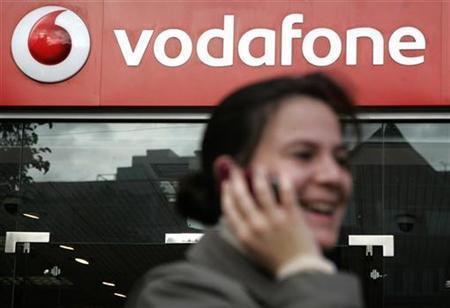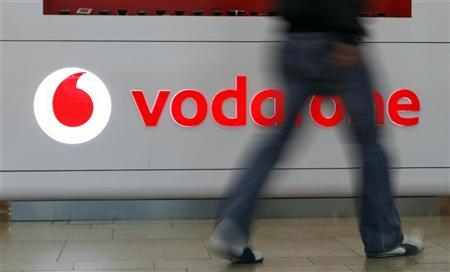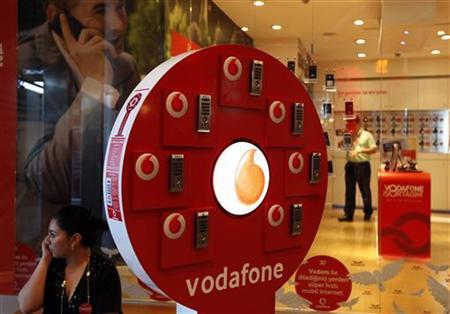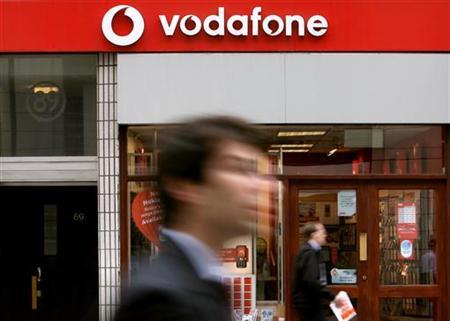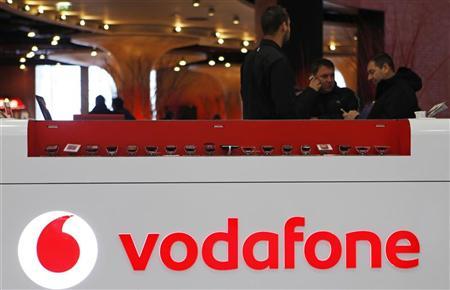 | « Back to article | Print this article |
Vodafone's tax battle far from over
The Supreme Court reaffirmed its earlier dismissal of a Rs 11,297-crore (Rs 112.97 billion) tax claim on Vodafone after the government petitioned it to reconsider its decision.
But, tax experts said the relief for the British telecom major could be temporary, in view of last week's Budget proposal of an amendment in the Income Tax Act that would enable the government to retrospectively tax cross-border transactions.
Though Law Minister Salman Khurshid told a TV channel the government would not file any curative petition, through which it could again ask the court to reconsider the order, tax experts said the law provided that once the Income Tax Act amendment was done, it would override any judgments of the court.
Click NEXT to read more...
Vodafone's tax battle far from over
A panel of judges comprising Chief Justice S H Kapadia, K S Radhakrishnan and Swatanter Kumar rejected the government plea to review the court's January decision to dismiss a tax claim on Vodafone's 2007 purchase of Hutchison Whampoa's Indian operations. The order did not discuss the various questions raised by the government.
A finance ministry official said: "As soon as the Bill becomes an Act, the demand will be restored. We don't have to do anything now. Vodafone will have the option to move court again."
However, Vodafone welcomed the judgment and said it looked forward to the return of its deposit immediately.
According to the earlier judgment, the court had directed the government to pay back the Rs 2,500 crore (Rs 25 billion) deposited by Vodafone in compliance of an interim order, with interest.
Click NEXT to read more...
Vodafone's tax battle far from over
The government paid back the amount to the company, with four per cent interest per annum, according to finance ministry officials.
Harish Salve, who successfully represented Vodafone in the Supreme Court, said the apex court had shown "robust independence".
"You have a long battle for four years and then you treat the judgment like this. Then you say you have removal of doubts. I don't think they are being fair to the Supreme Court, but the government has its own problems and it will deal with them," he told a TV channel.
Tax consultants, however, have varied views on the judgment.
"The court's move reinforces the clear understanding and interpretation of the law on taxability of indirect transfers that exists today with the judiciary, as was pronounced in January 2012 by the SC in Vodafone's case" said Sandeep Ladda, Executive Director, PwC India.
Click NEXT to read more...
Vodafone's tax battle far from over
Ladda said while the Budget proposed to undo that interpretation, it was bound to create a lot of uncertainty and unrest among investors who had already made huge investments in India or entered or were proposing to enter into similar transactions.
Hemant Joshi, Partner, Deloitte Haskins & Sells, said the relief for Vodafone could be temporary in view of the government's proposed retrospective amendment to the income tax law.
Tax litigation expert and partner, BMR Legal, Mukesh Butani said: "The retrospective amendments cannot override another law i.e. the Supreme Court decision because the apex court's decision is law itself."
Butani, however, added the situation had got complicated due to the validation clause which seemed to be negating the SC decision.
"This will give rise to several constitutional questions arising as a result of these developments," he added. HDFC Chairman Deepak Parekh said the government should have amended the regulation prospectively and not retrospectively.
Click NEXT to read more...
Vodafone's tax battle far from over
"Retrospective amendment means going against the Supreme Court judgement," he said.
In a written statement, Vodafone reiterated its earlier stand and said: "This once again emphasises the legality and bona fides of the transaction. The Supreme Court's clear and unambiguous ruling today, based on the existing laws of India, reiterates the Indian tax authority does not have the jurisdiction to tax the transaction."
The 101-page review sought by the government had claimed "errors apparent on record". Review petitions are examined in chambers, without oral arguments in open court.
Therefore, the court did not give reasons for its conclusions, as is the normal practice.
According to the government, there was a patent error in the ruling of the court that the offshore transactions, which gave Vodafone 67 per cent stake in Hutch-Essar, was bona fide, structured foreign direct investment in India.
Click NEXT to read more...
Vodafone's tax battle far from over
It was an incontrovertible fact that no investment or inflow of funds took place to India, the government pleaded. Some jurists believe the government cannot pass a law to obliterate the effect of a judgment of the highest court of the land. It would affect the comity of the three arms of the state.
On the other hand, there is another viewpoint that Parliament has the power to cure defects pointed out by a judgment, though the law should not specifically negate the effect of the judgment.
Whether these contrary viewpoints will land in the Supreme Court once again, leading to a prolonged legal wrangle, will be clear only after Parliament passes the amendment to the tax law as proposed in the Budget.
